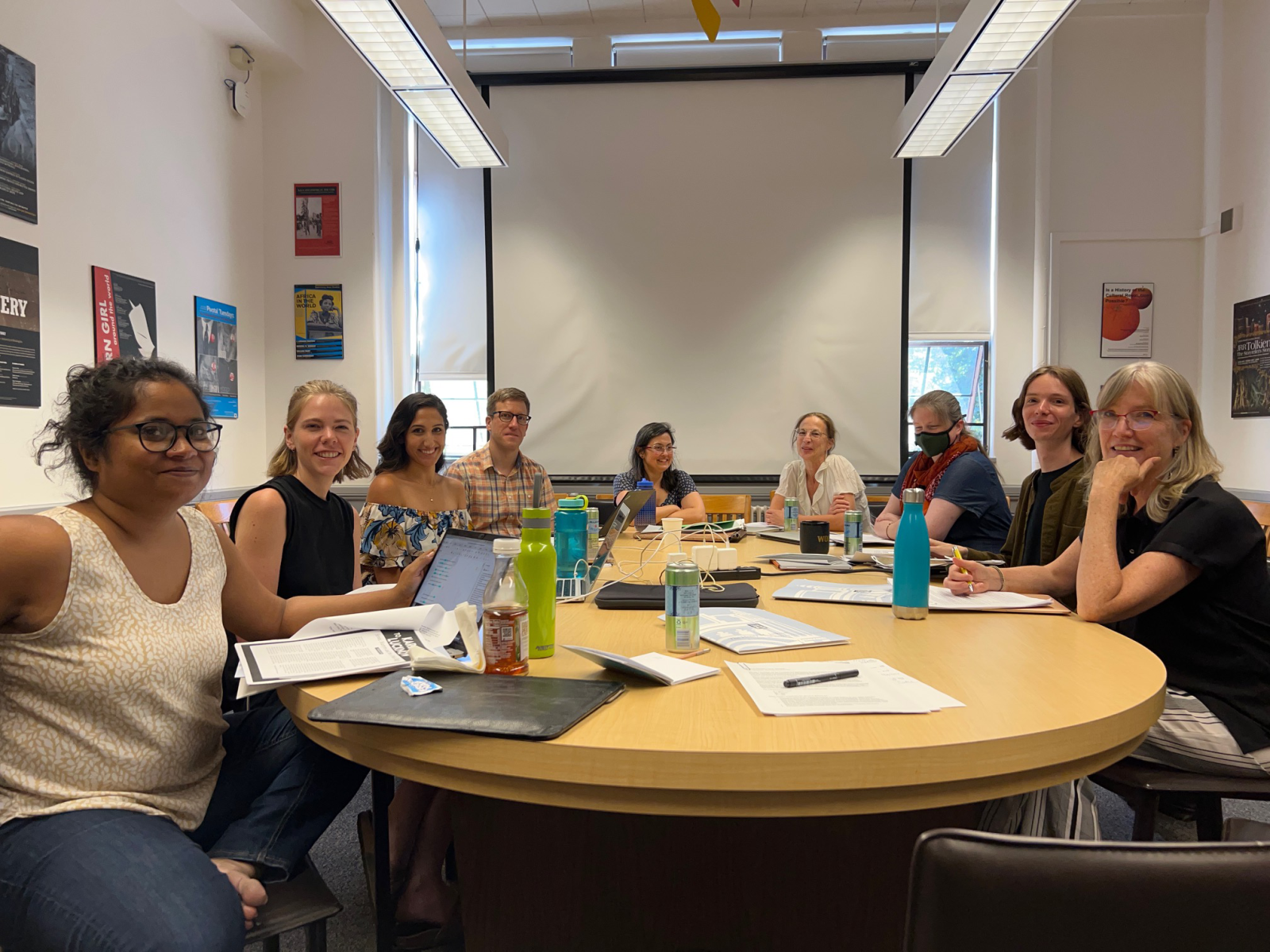
This event presented a rare opportunity for scholars to read original manuscript sources with specialists. The intention was to broaden everyone’s horizons by reading across what are now classified as different “languages” and scripts but circulated through many communities, regions, and scripts at the time of their creation.
On August 5th and 6th, Purnima Dhavan (History) and Heidi Pauwels (Asian Languages and Literature) organized for the South Asia Center an advanced workshop in the scholarship of Classical Hindi and its associated vernaculars, captured in the term “Hindavī.”
This event presented a rare opportunity for scholars to read original manuscript sources with specialists. The intention was to broaden everyone's horizons by reading across what are now classified as different “languages” and scripts but circulated through many communities, regions, and scripts at the time of their creation.
Professor Anne Murphy from the University of British Columbia in Vancouver was invited as a specialist of multiple scripts and shared her expertise in Punjabi. Applications from talented scholars exceeded the number of seats available, suggesting wide interest in this kind of cross-linguistic, cross-disciplinary work.
Students came from the Sorbonne in Paris, France; McGill University in Montréal, Canada; and the University of Chicago and New York University in the United States. Professionals from Wake Forest University in Winston-Salem, North Carolina in the United States and the University of Exeter in the United Kingdom also attended.
To accommodate as many participants as possible, there were seven intensive reading sessions covering a broad historical scope. Texts from the sixteenth century included the earliest translation of the Bhagavadgītā from Sanskrit into the vernacular of Gwalior as well as a Sufi romance in classical Hindi (Avadhi) translated into Persian. Texts from the eighteenth century included Punjabi oral epics and early Urdu (Rekhtā) ghazals by Delhi poets and Southern (Dakhani) ones by a Hyderabadi courtesan. Texts from the nineteenth century included Shi’a mourning poems in Braj, the form of classical Hindi usually associated with Krishna devotion.
The resounding success of this workshop, drawing on UW and Northwest expertise, was made possible by funding from the South Asia Center, the Simpson Center for the Humanities, and the departments of History and Asian Languages and Literature.